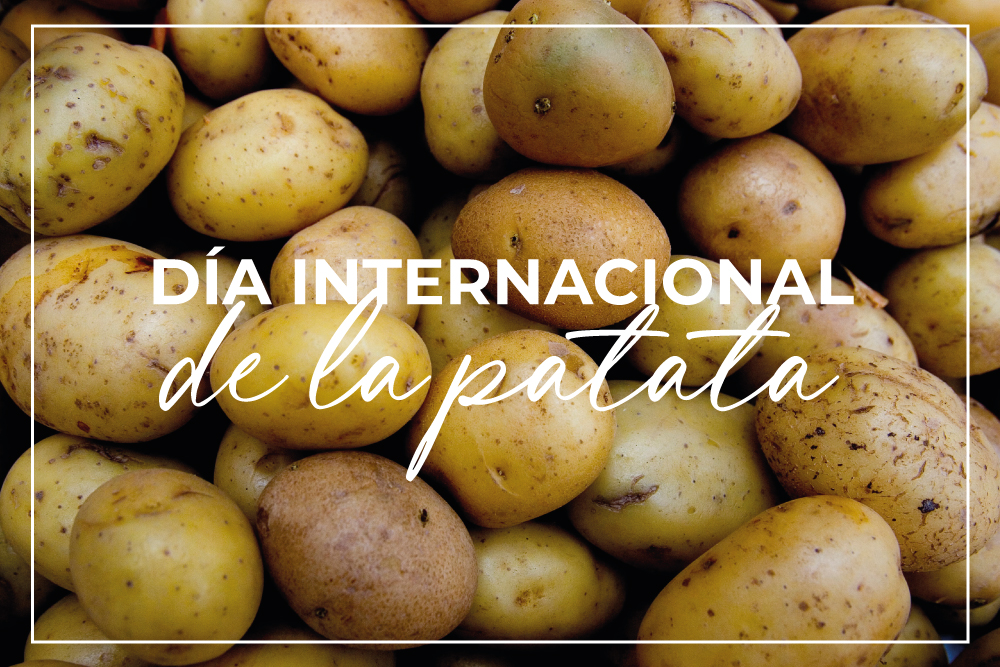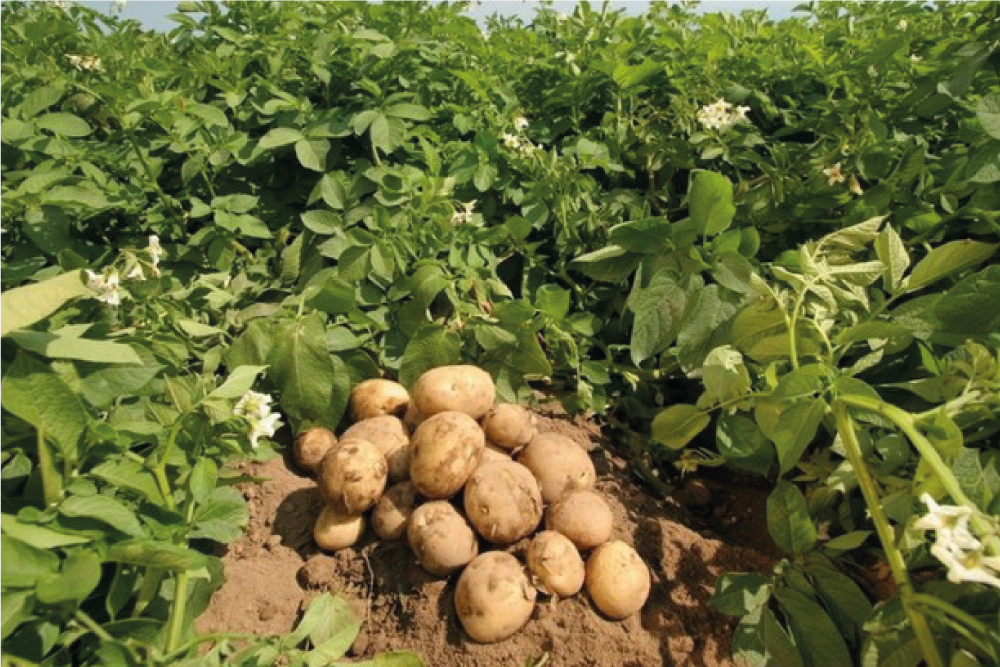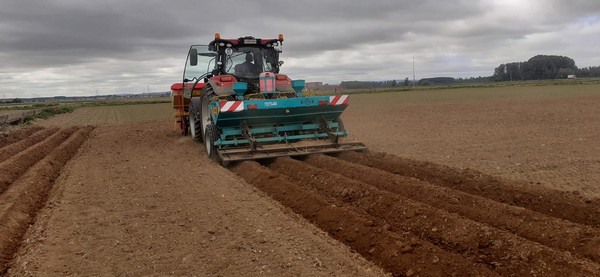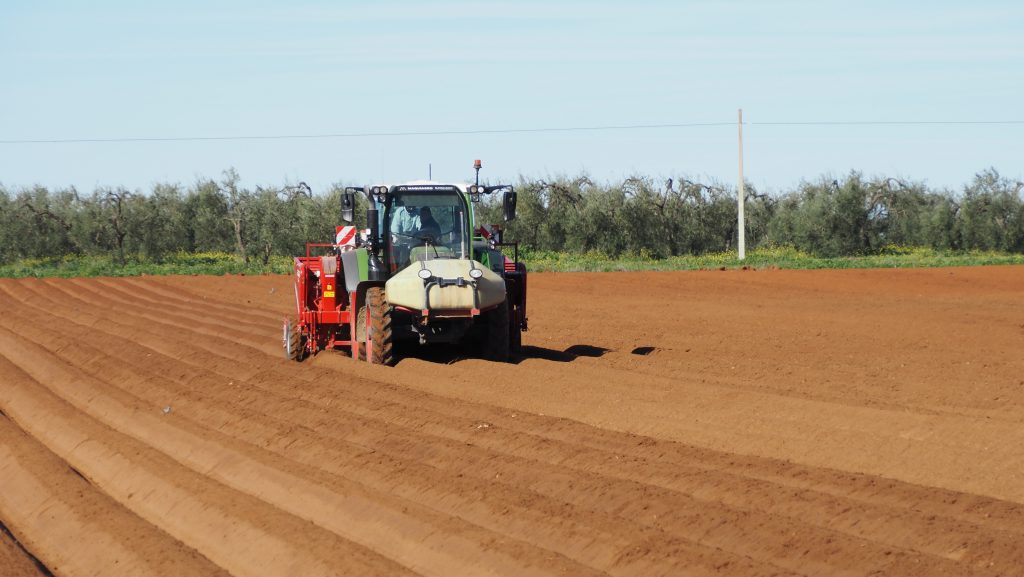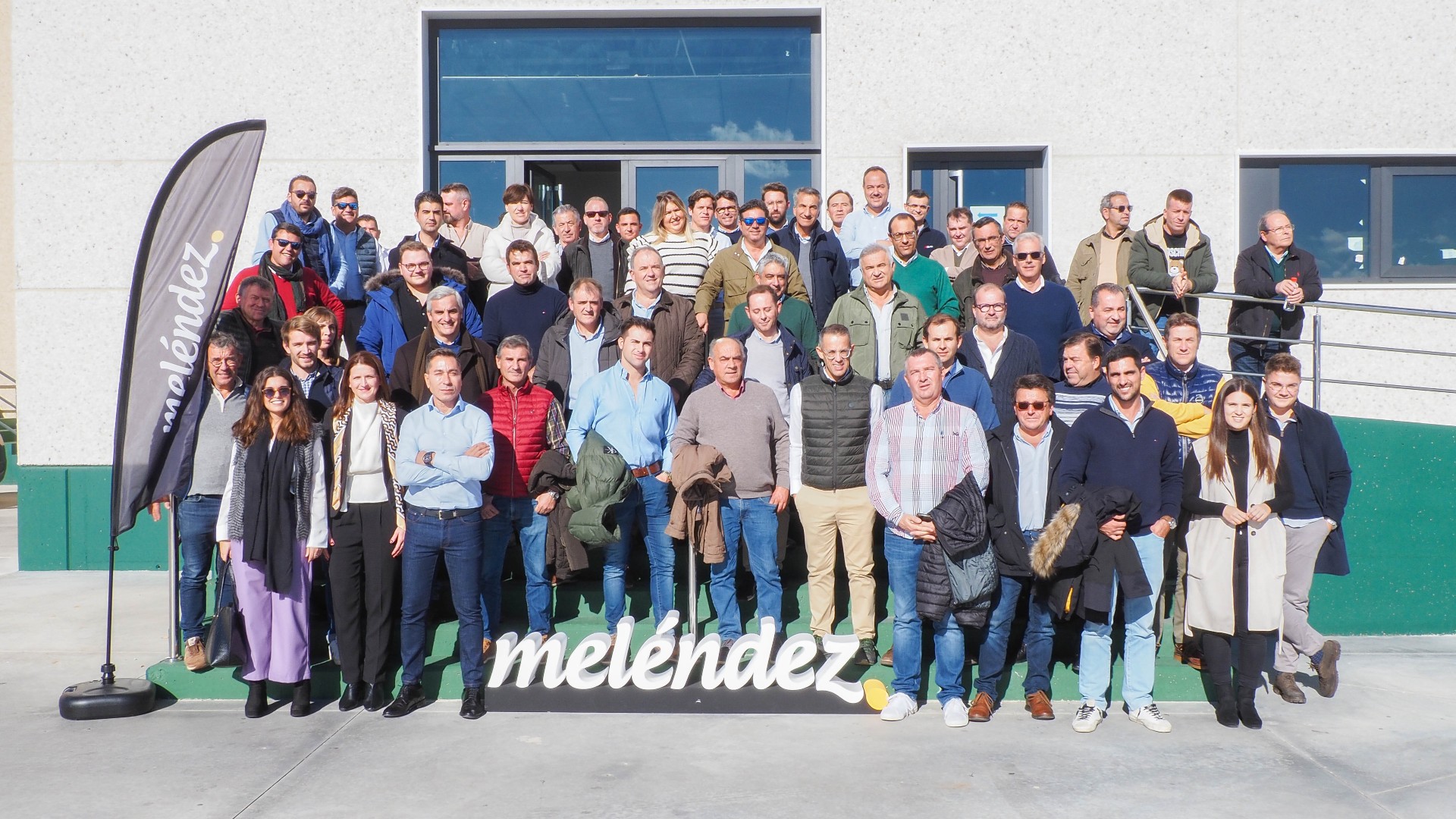Log in
Create an account
Reset password

New potato varieties to combat rising salinity in Egypt
Climate change is not sparing Egyptian farmers and is imposing itself in various ways, such as altering the length of the season or the size of harvests. Even more seriously, climate change can manifest itself in rising sea levels and increased salinity of irrigation water and soil.
Rising salinity levels are forcing farmers in many areas to change crops as the soil has become less receptive to their usual crops. Jeroen Bakker, breeding manager of HZPC, a Dutch potato breeder, has been working on this issue in the potato sector for years, offering growers new varieties with “high salinity tolerance”.
The potato sector is particularly concerned about rising salinity in Egypt, as it is grown in the most affected areas, as well as being considered a “strategic crop” in the government’s plans to reclaim desert land. Jeroen says: “We see that the Egyptian government is reclaiming new fields in the desert to be irrigated from wells that sometimes face varying water qualities, while there is no rain to dilute the salt, as in many parts of Europe. The area of Wadi Natrun has a long history of salinity, as the name of the village suggests. Other areas of Egypt where salinity is a problem include Fayun and especially the north near the Mediterranean Sea. Problems are also observed in southern Spain, Italy, Pakistan, Namibia and the Netherlands.
“To meet the growing and pressing need for salinity tolerant potato varieties, we started introducing our Sagitta variety a few years ago,” Jeroen continues. “This variety has the ability to be very stable in various agro-edaphoclimatic conditions, but it also performs much better in saline conditions than other varieties. Yield and tuber size do not decrease as much under higher salinity levels”.
The worrying situation in Egypt and other parts of the world requires further development of tolerant varieties, according to the breeder. “Annually, we start our breeding programme with thousands of seedlings resulting in a few candidate varieties after ten years of testing and selection. In the last decade, we have observed in our varieties a significant increase in marketable yield combined with several disease resistances and improved quality characteristics. These new candidate varieties are also being tested under different levels of salinity.
in trial fields in Egypt and in a new area in Spain. We focus on five different markets: fresh for retail, traditional fresh, chips, fries and flakes, and the need for robust and resilient varieties is stronger than ever. Our goal, ‘to drive the development of responsible food for the world’s population’, shows that we are firmly focused on sustainable potato production worldwide”.
Asked how soon the new varieties can be commercially deployed, Jeroen replies: “Our seed potato production is based on our long-term sales forecast. We have included the recent development of increased salinity in our seed production plan, and we strive to supply the demand in the coming years. Not only do we have the Sagitta variety, but we are starting to introduce a completely new variety (2890) which has very high yields, an elongated shape and a low nitrogen requirement. Above all, it is one of the best performing potato varieties under medium to high salinity stress conditions, both in spring and winter”.
Subscribe to our newsletter
You will receive a 20% discount for your first purchase in our online shop.
Contact
Shop
tiendaonline@patatasmelendez.com
Commercial
comercial@patatasmelendez.com
Quality
calidadmelendez@patatasmelendez.com



